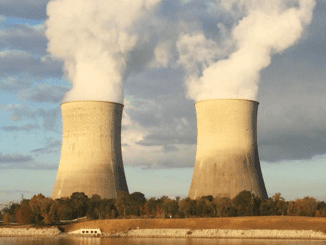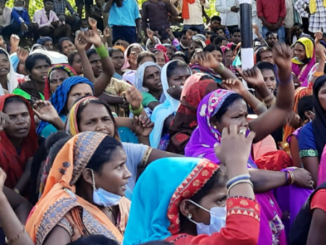
CAPE TOWN, South Africa, November 19, 2020 (ENS) – “Major climate impacts and exorbitant costs have sounded the death knell” for one of the last new proposed coal-fired power stations in South Africa – Thabametsi power station in water-scarce Limpopo province, says the Centre for Environmental Rights. This firm of environmental justice lawyers has worked to block the power station for its potentially damaging effect on the climate.
Last week, environmental justice groups Earthlife Africa and groundWork, who have been challenging the Thabametsi power station in court since 2016, secured agreement from both Thabametsi and the state for the environmental authorisation issued for this power plant by the Department of Environment in February 2015 to be set aside.

The two groups argued in court papers that the country’s former Environment Minister, the late Edna Molewa, had disregarded the devastating climate impacts of the proposed 557 megawatt Thabametsi project, which was originally approved for an even greater capacity of 1200MW with much greater climate impact.
The first environmental authorisation for this plant was set aside by the Pretoria High Court in 2017 in South Africa’s first climate change court case, brought by Earthlife Africa, represented by the Centre for Environmental Rights.
Now, says the Centre for Environmental Rights, CER, the setting aside of Thabametsi’s environmental authorisation means that, should it still plan to proceed, it would have to seek a new authorisation from the Environment Department – a major setback for the project.
The groups maintain that the Thabametsi plant would have been among the most carbon-intensive coal power stations in the world. The plan was to locate the power station near the coal mining town of Lephalale.
A new mine was to be built near the Thabametsi power plant. Exarro was selected as the preferred supplier of coal for 30 years – expected to supply nearly 4 million tonnes a year from the new Thabametsi mine planned for a site to the south of the Thabametsi power plant.
Now, the original financiers of this proposed coal-fired power plant are running for the hills.
Last month, South Korea’s state-run Korea Electric Power Corp, KEPCO, announced its withdrawal from its 50 percent stake in the Thabametsi project. Earlier this week, it was reported that both the Public Investment Corporation and the Industrial Development Corporation, had withdrawn their financing too.

The Development Bank of Southern Africa was quoted as saying it was reassessing the project to determine if it was in-line with the bank’s policy of a “just transition towards a low carbon economy.”
All South Africa’s private banks have already withdrawn their pledged funding for the project.
“In an environment where renewable energy is much cheaper than coal, any new investment in coal power is completely unjustifiable,” says Earthlife Africa director Makoma Lekalakala. “That is over and above the unconscionable health and environmental costs of coal, which are being borne by communities living in all our coal areas in Mpumalanga, Limpopo and KwaZulu-Natal.”
Thomas Mnguni, groundWork community coal campaigner, agrees. “This is a victory for environmental justice, the just transition and open democracy.”
Had it proceeded, Thabametsi would have been one of the most greenhouse gas emission-intensive coal-fired power stations in the world, and would have cost South Africa R12.57 billion in comparison to a least-cost electricity system.
The Industrial Development Corporation, which faces criticism of its ongoing investments in fossil fuels, still seemed to suggest in reports that it would consider financing “clean coal” projects.
“Clean coal is a myth,” said Nicole Loser, the attorney at the Centre for Environmental Rights who has led the legal challenge of Thabametsi. “There is no version of coal-fired power that curbs greenhouse gas emissions, or adequately mitigates all the harms of coal-fired power to the extent it is required. In any event, the additional costs of this technology make already-expensive coal completely uncompetitive with cheaper clean energy sources.”
Copyright Environment News Service (ENS) 2020. All rights reserved.
© 2020, Environment News Service. All rights reserved. Content may be quoted only with proper attribution and a direct link to the original article. Full reproduction is prohibited.



